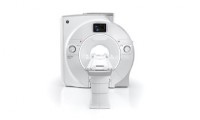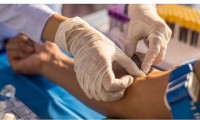-
Oxford Biodynamics launches prostate screening test
- Source: drugdu
- 118
- September 29, 2023
-
CMS leader defends breakthrough device reimbursement proposal at House hearing
- Source: drugdu
- 100
- September 22, 2023
-
BeiGene and Nona Biosciences expand collaboration for antibody discovery
- Source: drugdu
- 207
- September 21, 2023
-
Meridian Bioscience announces FDA clearance for innovative Curian® Shiga Toxin Assay
- Source: drugdu
- 241
- September 20, 2023
-
GE HealthCare partners with Mayo Clinic to accelerate work on imaging and AI
- Source: drugdu
- 128
- September 18, 2023
-
New Biotech Targets Rare Respiratory Disorders with Inhaled Gene Therapies
- Source: drugdu
- 108
- September 18, 2023
-
Illumina Taps Agilent Exec as New CEO Amid Company’s Daunting Challenges
- Source: drugdu
- 103
- September 7, 2023
-
New Biomarker Tests Aid Quick, Accurate Diagnosis of Alzheimer’s Disease
- Source: drugdu
- 190
- September 6, 2023
-
Trade groups urge CMS to expand, quickly finalize breakthrough device pathway
- Source: drugdu
- 153
- September 1, 2023
-
VC funding in medtech ticks up, raising hopes that slump has bottomed
- Source: drugdu
- 99
- August 28, 2023
your submission has already been received.
OK
Subscribe
Please enter a valid Email address!
Submit
The most relevant industry news & insight will be sent to you every two weeks.













